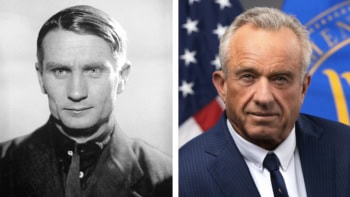
Over 3000 dignitaries from around the world are due to attend the official inauguration today of the King Abdullah University of Science and Technology (KAUST). Situated about 90 km north of Jeddah on the Red Sea coast, KAUST comes with an endowment of some $10bn and aims to become “one of the world’s great institutions of research”. The university, which has been built from scratch, has the personal backing of King Abdullah, who wants to “rekindle and spread the great and noble virtue of learning that has marked the Arab and Muslim worlds in earlier times”.
KAUST will be a graduate-level institution, with an emphasis on interdisciplinary research in four main areas: materials science and engineering; resources, energy and environment; applied maths and computer science; and biosciences and bioengineering. It has already formed partnerships with some 27 other universities, including Harvard, Stanford and Caltech in the US and Oxford, Cambridge and Imperial College in the UK. It has also joined forces with 11 industrial firms such as Boeing, IBM and Schlumberger. The university currently has 71 faculty staff, a figure that it hopes will eventually rise to 225.
Built from scratch
KAUST is an ambitious project in a country where many students go overseas for their education. It will initially offer two types of graduate courses – 18-month master’s degrees and PhDs lasting three or four years. Almost 7200 students from 61 different countries have already applied to study at KAUST. It has so far far accepted 817 graduates, of whom 44 will begin PhDs this autumn and 330 taking the master’s degree. The rest will start at KAUST from next year.
Despite having been built from nothing, KAUST has plenty of research facilities already in place. These include a nanofabrication, imaging and characterization lab, which includes no less than 10 NMR spectrometers, as well as a “fully immersive six-sided virtual-reality” facility, built with researchers at the University of California, San Diego, to carry out scientific visualization. KAUST will also have a 222-teraflop supercomputer that, it says, is the fastest supercomputer in the Middle East. Developed with IBM, it has been dubbed “Shaheen” from the Arabic for “falcon”.
Promise of freedom
Although Saudi Arabia is notorious for its rigid interpretation of Islam, KAUST says that it will be open to both men and women from around the world. It has promised that it will provide “unfettered” access to information and that it will “nurture and protect freedom of research, thought and discourse relating to scholarly work”. The university will also be overseen by an independent board of trustees, which includes former Irish president Mary Robinson and the current director-general of the CERN particle-physics lab, Rolf-Dieter Heuer.
The president of the university is Choon Fong Shih, a mechanical engineer who was formerly president and vice-chancellor of the National University of Singapore. Shih previously spent 30 years in the US, including spells as at Harvard and Brown universities and General Electric. He hopes that the number of papers published by KAUST faculty will, within a decade, equal those of scientists at the world’s best research universities.



